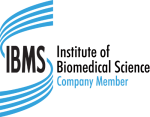Article of Interest:Vascular Biology
Abstract
Accelerated atherosclerosis represents a major problem in both systemic lupus erythematosus (SLE) and rheumatoid arthritis (RA) patients, and endothelial damage is a key feature of atherogenesis. We aimed to assess early endothelial changes in SLE and RA female patients (127 SLE and 107 RA) without previous CV events. Biomarkers of endothelial cell activation (intercellular adhesion molecule-1 (sICAM-1), vascular cell adhesion molecule-1 (sVCAM-1), thrombomodulin (TM), and tissue factor (TF)) were measured and endothelial function was assessed using peripheral artery tonometry. Reactive hyperemia index (RHI), an indicator of microvascular reactivity, and augmentation index (AIx), a measure of arterial stiffness, were obtained. In addition, traditional CV risk factors, disease activity and medication were determined. Women with SLE displayed higher sICAM-1 and TM and lower TF levels than women with RA (p = 0.001, p,0.001 and p,0.001, respectively). These differences remained significant after controlling for CV risk factors and medication. Serum levels of vascular biomarkers were increased in active disease and a moderate correlation was observed between sVCAM-1 levels and lupus disease activity (rho = 0.246) and between TF levels and RA disease activity (rho = 0.301). Although RHI was similar across the groups, AIx was higher in lupus as compared to RA (p = 0.04). Also in active SLE, a trend towards poorer vasodilation was observed (p = 0.06). In conclusion, women with SLE and RA present with distinct patterns of endothelial cell activation biomarkers not explained by differences in traditional CV risk factors. Early vascular alterations are more pronounced in SLE which is in line with the higher CV risk of these patients.


